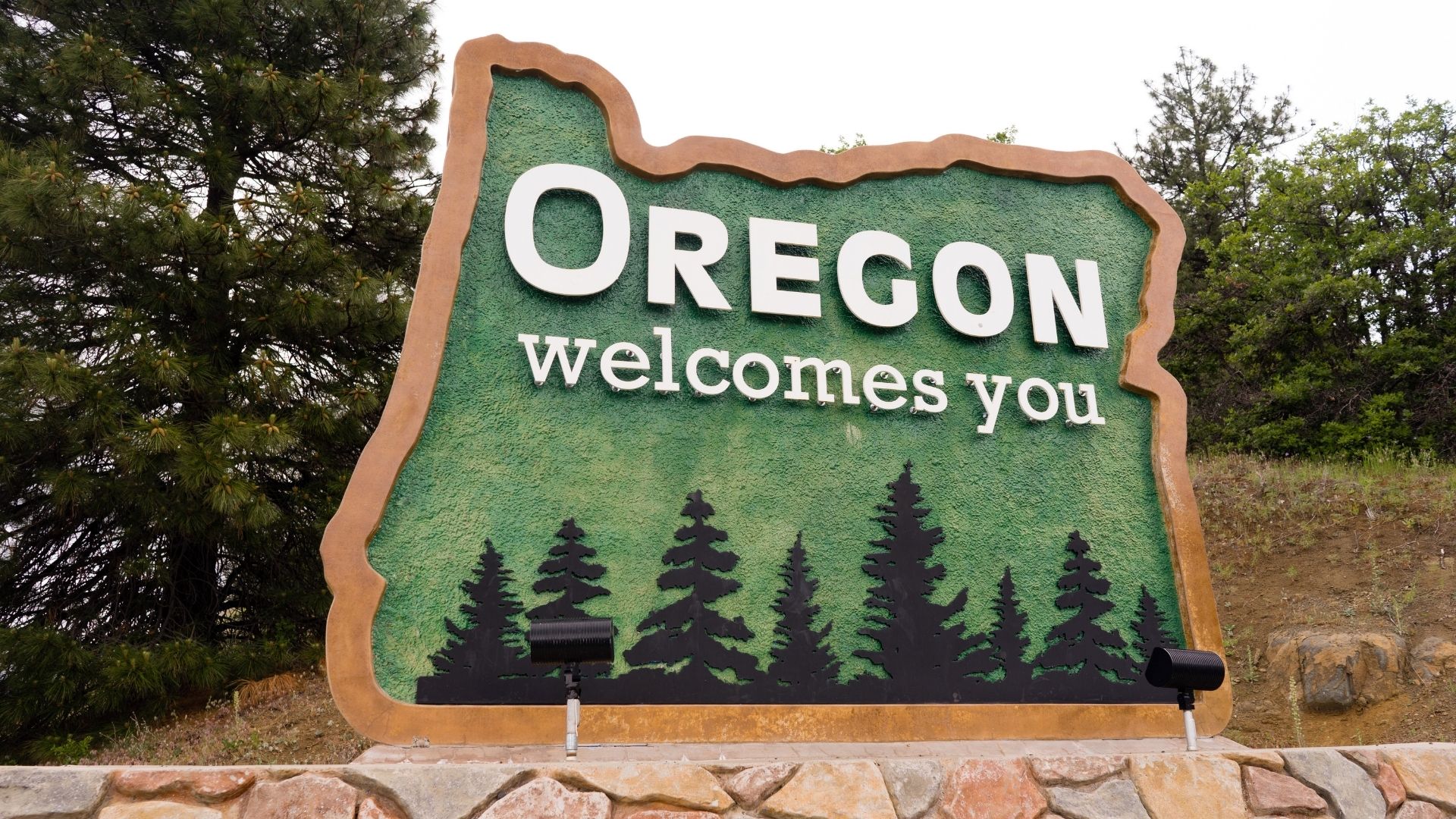
Disclaimer: This article doesn’t constitute legal advice, and landlords should not substitute this information for professional legal advice.
Whether you own a single property or you manage rental units across Oregon, you need to know the state’s rental regulations. When you have a good understanding of the basics of Oregon landlord-tenant law, you can get more out of your investment. Learn everything you need to know about lease agreements, security deposits, and eviction proceedings in our guide to Oregon rental laws.
A guide to Oregon rental laws and regulations
- Leases, rent, and fees in Oregon
- Security deposits and deposit management in Oregon
- Notices and entry regulation
- Oregon utility laws
- Oregon pet laws
- Required disclosures
- Eviction laws in Oregon
- Oregon business license
- Oregon court information
- Additional resources for Oregon landlords
- FAQs about rental laws in Oregon
Leases, rent, and fees in Oregon
When you rent out property in Oregon, you aren’t required to issue a written lease agreement. Yet, it’s in your best interest to do so, as having a written agreement can set expectations and outline the rental term, monthly payment, and additional fees.
In Oregon, rent is generally due on the first of the month, and you can’t require it before the rental period starts.
What to include in an Oregon lease
- Rent amount
- Due date for rent
- Where to pay rent
- How to pay rent
- Acceptable forms of payment
- Late fees and policies
- Any warnings for rent adjustment
Late fees in Oregon
If renters miss the payment date, you must honor a four-day grace period before charging a late fee. On the fifth day after the due date, you can charge a late fee as long as you outline the terms in the lease agreement. You have a few options for structuring late fees:
- Charge a flat fee that’s equal to the market rate in the area.
- Issue a daily late fee that totals 6% or less than a market rate flat fee.
- Every five days, charge a late fee that equals 5% of the monthly rent.
Adjusting rent prices in Oregon
Occasionally, you may opt to increase the rent for your properties. Although you can raise the rent for ongoing rental agreements, you’re prohibited from adjusting the rent during a fixed-term lease.
Oregon landlords have to follow state regulations for amounts and time frames when issuing a rent increase notice.
- Month-to-month leases require 30 days’ notice.
- Week-to-week leases require a seven-day notice.
If you rent out property in Portland, you should also keep these guidelines in mind:
- If you increase the rent or any other housing costs by 5% or more within 12 months, you have to provide 90 days’ notice.
- If you raise the rent or other housing expenses by 10% or more, renters can opt to leave with the help of Relocation Assistance. Renters have to request Relocation Assistance within 45 days of receiving notice, and you have to pay it within 31 days of getting their request. Renters have to reimburse you for any Relocation Assistance if they opt to stay.
Ending a lease agreement in Oregon
When you need to end a lease, you’re typically required to provide written notice in advance. Keep these timelines in mind:
- You have to give at least seven days ‘ notice for at-will renters who have occupied the property for over a year.
- For a lease with a fixed term, the agreement expires automatically, so no notice is necessary.
- For an annual lease with no fixed end date, you have to provide a 60-day notice.
- For a month-to-month lease, you have to give 30 days’ notice.
- If you intend to sell the property, you have to give 30 days’ notice for monthly renters and 60 days’ notice for renters who have occupied the property for over a year.
Security deposits and deposit management in Oregon
In Oregon, security deposit regulations are relatively limited. As a landlord, you can charge a security deposit of any amount, as there are no maximums in place. You do have to provide renters with a receipt that reflects the amount of the security deposit.
Holding security deposits
You can hold the security deposit in any account of your choice, and you can combine it with other assets. You aren’t required to tally or repay interest, so you can retain it for yourself.
Returning security deposits
After the lease ends or the renter vacates the property, you have 31 days to repay the security deposit. If you deduct any portion of the deposit, you must provide an itemized list of the related expenses. If you neglect to return the security deposit within that time frame, the renter can take you to court for up to twice the amount owed.
Additional fees
Oregon law allows landlords to charge other amounts in addition to the security deposit. Before renters move in, you can ask them to pay:
- Last month’s rent, which you can only apply to unpaid rent and not to damages
- An application fee, which is nonrefundable and should only cover the cost of background checks or screenings
Notices and entry regulations in Oregon
In most cases, you’re required to give 24 hours’ notice and state the reason and time for your visit.
- If you have to enter an occupied unit to make emergency repairs, you must inform the renter about the reason and the time within 24 hours after your visit.
- If the renter appears to have abandoned the property or left it for more than seven days, you can enter it with no advance notice.
Oregon tenant rights allow renters to deny entry if there’s no emergency. Renters must post a notice on your door to let you know if they refuse your entry request.
Oregon utility laws
As the property owner, you can determine how renters will pay utilities. You should outline payment responsibilities in the lease agreement. Keep in mind that if you fail to provide essential utilities like running water or heat, renters can withhold rent payments. In addition, you can’t shut off utilities in an occupied unit.
Oregon pet laws
In Oregon, landlords can establish pet policies for individual rental properties. If you prohibit pets or have limitations on the types or number of pets, you must state your policy in the lease agreement. Although you can change the policy at any time, you must allow any preexisting pets to continue to occupy the property after the change.
Federal law requires landlords to make reasonable accommodations for service animals.
Eviction laws in Oregon
When you rent property, it’s essential to be prepared for a wide range of issues, including evicting renters. In Oregon, landlords can terminate leases for many reasons:
- Neglecting to pay rent.
- Failing to pay late fees.
- Violating the terms of the lease.
- Threatening other renters.
If you decide to terminate a lease for one of the reasons above, you typically have to give adequate notice to the renter. In the event of nonpayment, you have to give renters 72 hours to make any past-due payments. For lease violations, you have to provide 30 days’ notice. After these time frames have passed, you can begin eviction proceedings if necessary.
However, you can start the eviction process with just 24 hours notice in some extreme cases. Reasons for an emergency termination include:
- Renters or their pets injure or threaten to harm another person on the property.
- Renters recklessly endanger another person on the property.
- Renters or their pets seriously damage the property more than once.
- Renters produce, deliver, or possess controlled substances on the property.
- Renters commit hate crimes on the property.
Portland eviction rules
If you own property in Portland, slightly different eviction rules apply. In Portland, you can also evict renters for additional reasons, as long as you follow a few basic guidelines:
- Give renters a 90-day notice.
- At least 45 days before the eviction date, pay Relocation Assistance based on the size of the unit.
If renters leave belongings behind, it’s your responsibility to address the situation. First, you have to send notice of the belongings, including your intention to store or dispose of them. If renters don’t respond within five days, you can handle them as stated. If renters do respond within five days, they may collect their belongings within 15 days. If you sell the belongings, you must send renters any proceeds that exceed the cost of storage and other unpaid expenses.
Required disclosures
When preparing a lease agreement, be sure to include these common landlord disclosures and notices:
Contact information
You have to provide renters with the name and address of the property owner and manager.
Domestic violence
You must allow renters who are victims of domestic violence to end the lease early without penalty. If requested, you must change the locks on the unit.
Flood plain
You must inform renters if the building is located in a 100-year flood plain.
Lease agreement
You must provide renters with a copy of any written lease agreement.
Marijuana usage and cultivation
Although Oregon allows recreational marijuana use, you can prohibit it on your property, just as you can with smoking. If you do want to restrict marijuana use or plant cultivation in any way, you have to include your policy in the rental agreement.
Subleasing
Your lease agreement must outline your policy on subleasing, including any prohibitions or limitations.
Oregon business licenses
Oregon state law doesn’t require landlords to have a business license before renting out property. However, major cities like Portland and large counties like Multnomah County require landlords to register and pay business taxes. Always check with your local jurisdiction to confirm licensing or taxation requirements.
Oregon court information
No matter how much you want to avoid taking renters to court, it’s essential to understand your options. In Oregon, you can resolve most disputes with renters in small claims court, typically handling claims up to $10,000. For eviction proceedings, you generally have to file a claim at the county circuit court. Use these links to learn more:
Additional resources for Oregon landlords
Rental regulations are subject to change, so it’s important to stay on top of updates across Oregon and your local area. Keep these links handy, so you always have current rental laws at your fingertips:
Are you searching for an easier way to rent your property and avoid vacancies? Find out how Zumper helps landlords post property listings, screen renters, and collect payments via a single platform.
FAQs about rental laws in Oregon
Is Oregon a landlord- or renter-friendly state?
Renter-friendly.
Does Oregon require a written lease agreement?
No. A written lease is at the landlord’s discretion.
Does Oregon have security deposit regulations?
Yes. There are regulations on amount and handling.
Are landlords required to provide receipts for rent payments or deposits?
Yes. Landlords must provide receipts.
Does Oregon place limits on late fees for rent payments?
Yes. After the fifth day of non-payment, late fees may be assessed.
Does Oregon have pet laws for renters?
Yes. Landlords establish the policies for pets and must clearly state those policies.
Do Oregon landlords have to provide notice before entry?
Yes. Generally, a 24-hour notice is required.



